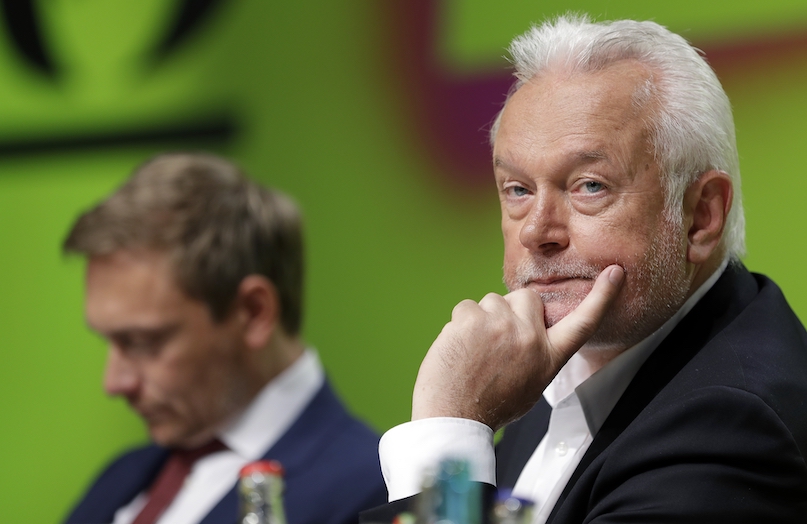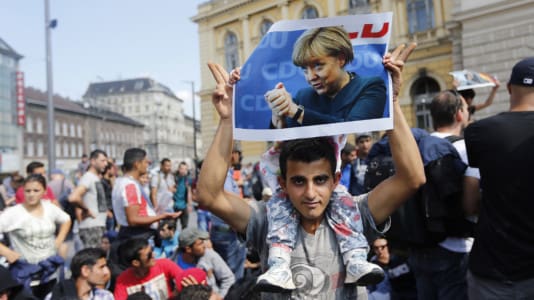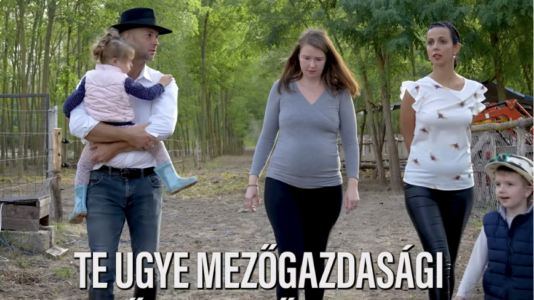Chancellor Olaf Scholz’s party may have “avoided the worst” this past weekend, but the Brandenburg election results may have marked the beginning of the end of his “traffic light” coalition, Mandiner.hu reports.
The Greens were eliminated from the local legislature in Brandenburg, and the liberal FDP, which has long played kingmaker for the two left-wing parties in the ruling coalition, did not make it into parliament for the third time, completely losing its base of support.
In two of the three east German states that recently voted, FDP did not even reach 1 percent; only in Thuringia did they achieve a measurable result, 1.1 percent. It is an absolute catastrophe for the party, which is the smallest member of the three-party coalition governing Germany at the federal level.
Given his party failed to reach the 5 percent threshold to enter parliament — now for a third election in a row — Bundestag vice president and former state chairman of the FDP, Wolfgang Kubicki, has indicated that he no longer really wants to participate in Olaf Scholz’s government and will be making a final decision this autumn, which would mark the end of the governing coalition.
“Either the traffic light coalition shows that it can draw the necessary conclusions from these elections, or it will cease to exist,” Kubicki told the Funke Mediengruppe. “This is a matter of a few weeks. We will not wait until Christmas. We cannot expect the country to endure this.”
Kubicki also called cooperation with the Greens “toxic” for the FDP and noted that the coalition has “completely different views” in terms of economic policy. The FDP is known for aligning itself with economic liberalism, i.e., free markets and privatization, and has had none of its policy preferences nor those of its base represented in the governing coalition since it joined in 2021.
“Either we manage to find a meaningful common denominator in this matter in the next 14 days, three weeks, or it makes no sense for the Free Democrats to continue working in this coalition,” Kubicki added.
Kubicki is not the only one from his party who feels this way. The Bavarian FDP leader Martin Hagen even demanded that the FDP immediatley withdraw from the traffic light coalition.
“If you notice that it is no longer working, then at some point you have to be prepared to pull the plug,” he told the Augsburger Allgemeine newspaper.
“We need to speak frankly in the federal executive board,” he added.
The FDP was thrown out of the state parliament in October in Bavaria last year, having only achieved 3 percent. That was the first election that truly set off alarm bells in the FDP, and it has only been downhill since then.
The FDP has been “punished in every state election for the past three years, and that is not due to the work on the ground,” he said.
According to Hagen, the citizens rejected the traffic light government and made this “unmistakably clear.” Germany needs a “change in economic and migration policy, which does not seem possible with this coalition,” Hagen raged: “This cannot go on.”
Bijan Djir-Sarai, the secretary general of the FDP, has also told press outlets that a final decision on FDP’s continuing participation in Scholz’s coalition will come this autumn.






